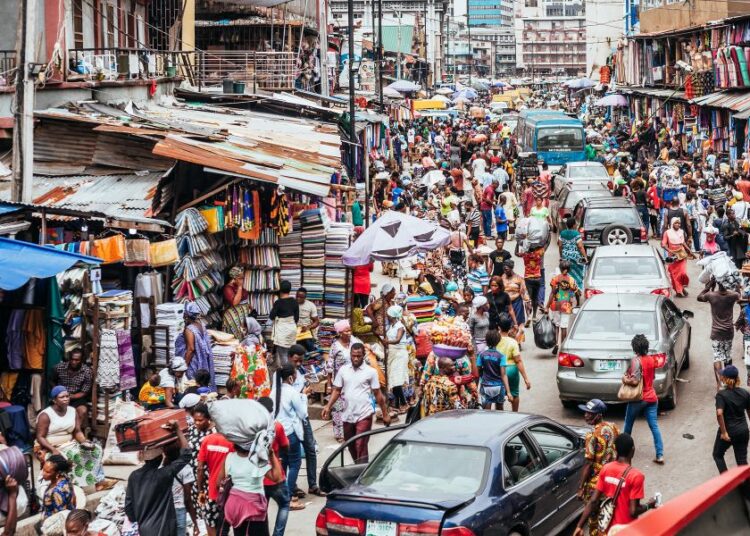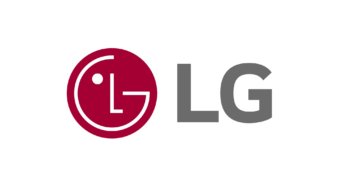As Muslims celebrate Eid al-Adha around the world, Nigerian Muslims struggled to cope with the tough economic scenario that triggered hike in food prices and transportation, nationwide, LEADERSHIP learnt.
This is even as there was a massive turnout of passengers across all the standard gauge railway corridors, yesterday, as travelers seek alternative means of transportation to their hometown for sallah.
As at yesterday when celebrants were making last minute purchases, most of them who spoke to LEADERSHIP complained of a hike in consumables, especially pepper whose price is out of reach of the common man.
While some said, cloth materials they bought to sow their clothes were way expensive than what it was last year, thereby, forcing some families to rely on old clothes for Sallah, without new clothes, they grumbled about the price of rams and transport fares for those traveling out of their States to their hometown.
In all, many are facing steep increases in the cost of transport and food, adding strain to household budgets already stretched by economic challenges.
In markets across Lagos and Ogun and Osun States when LEADERSHIP visited, traders report significant price hikes on items such as tomatoes, pepper, rams, and cows, citing increased insecurity, transportation costs as reason for price surge.
A crate of tomatoes that was sold for N15,000 last week has surged to N24,000 as at yesterday, leaving many buyers frustrated. For pepper(Rodo), what used to be sold around N7,000 is now N10,000 and above. Onion is N120,000 per bag and before, it was sold for N72,000 at Ile-Epo and Ifo markets in Lagos and Ogun States respectively.
At Mile 12 market, it is a similar situation, with pepper being the most expensive item. A small basket is sold for N100,000, while a big basket, previously priced between N240,000 and N250,000, now costs N300,000.
For tomatoes, a crate is sold for N30,000. A bag of Sanbo (another type of pepper) is now N200,000, whereas it was previously N120,000.
What hasn’t changed is the price of rice. It remains at N60,000, while 25kg of groundnut oil is still N67,000. Seasoning prices have also remained stable.
According to Iyaloja, FAAN market, Ikeja, Lagos, Afusat Shehu, “I came to the market with a budget, but prices have gone up again We learnt that, the increase in price of pepper was attributed to the collapse of the Niger Bridge, which has prevented large trailers from accessing the road. As a result, transport costs have doubled, further driving up prices.”
At Alaba Rago in Lagos and Ijako market in Ogun State, the price of ram were mostly the same, mostly hiked by 80 to 100 per cent between last year and now.
Hence, the price of a ram has risen to N250,000, up from N150,000 for the same size earlier. ‘A small cow is around N600,000, which used to be sold for N300,000 last year. The big one that was N700,000 is now N1.5 million,’ a Fulani seller said.
Omobolanle Kehinde, a celebrant, lamented the impact of rising costs, saying, “As the economy worsens, purchasing power continues to decline. We used to buy two rams and a cow for the celebration. Last year, we had to settle for one ram and a cow. Now, we just returned from the market and could only afford a cow, no ram. There is no money for both. Despite financial difficulties, Kehinde stressed the necessity of the purchase. ‘The cow we bought was a necessity, just to fulfil the commands of our God,’ she said.
For transport, fares have also spiked, with intercity bus operators raising prices as more people travelled to their hometowns for the festival. At Oshodi bus terminal, the fare from Lagos to Osogbo which was N7,200 before, is now N10,200, accompanied by stress.
Previously, they charged N7,200, according to Kadijat Omoboriowo, a mother of three, who only accompanied the children to the bus park. She said, “The crowd was overwhelming, with intense pushing as people struggled to secure a space. At one point, buses were loading four passengers per row until they were mandated to carry three per row. And this doesn’t mean the price will stop at N10,200. It will continue to rise because the more passengers they see, the more they increase fares,” she said.
In Osun, a celebrant who travelled from Lagos, Abideen Ganiyu said, the fare was too expensive but that he had to pay through his nose because this is a once in a year rite where he meets his extended family and jolly, thereby, bonding the family together.
An economist, Prof. Tayo Bello, warned that inflation continues to weigh heavily on consumers, with festive spending exacerbating the strain. “Inflation is everywhere. Once there is inflation, it will dwindle the purchasing power of people. We have been battling inflation for years now, not months.”Bello, who is Adjunct Professor at University of Ibadan, highlighted the sharp decline in the real value of wages, recalling that, when Nigerians earned N18,000, they were better off than when the minimum wage increased to N30,000. ‘N30,000 then is even better off than the new minimum wage,’ he added.
Citing rising costs of basic goods, Bello pointed to stark price increases. “How much do you buy table water now? It used to be N50, and it has gone to the level that anybody cannot talk now. Coca-Cola used to be N70 to N90, but now it is N600. A wrap of amala used to be N20, but now it is N200. Goat meat(Ogunfe)was N150, but now it is N2,500. A cow that was about N700,000 is now N1.5 million. Inflation is the one causing it,” he explained.
Bello also criticised Nigeria’s floating exchange rate, warning that no country survives without managing its currency. “No country in the world leaves its currency floating to be determined by market forces. Naira should be protected. Even the United States did not float its currency but it is managing it,” he argued.
‘When naira was N700, if it had been managed at that level, it got to N1,700 and moved towards N1,900 before the government started managing it,’ he said.
In his concluding remarks, the professor urged the government to implement key reforms to stabilise the economy and improve living conditions across the country. We need to provide adequate security for farmers to encourage farming, he added. He also called for radical policies to promote rural integration and curb mass migration to urban centres.
Additionally, he underscored the importance of nationwide infrastructural development, advocating for improvements in both rural and urban areas to drive economic growth and stability.
Meanwhile, there was a massive turnout of passengers across all the standard gauge railway corridors yesterday in response to the additional trains introduced to meet the demand of passengers by management of Nigerian Railway Corporation(NRC).
The railway corridors that witnessed large turnout of passengers, according to a statement issued by the corporation include: Lagos-Ibadan, Abuja-Kaduna and Warri-Itakpe.
Managing director of the corporation, Dr. Kayode Opeifa said the special train service was initiated in response to passengers who rely on train service for intercity travels.
He stated further that, the large turnout reaffirms the importance of railways in national mobility and commitment of management to expanding its services in order to meet growing transportation needs of the populace. Opeifa assured passengers of its resolve to improve service delivery, safety and customer satisfaction.
Recall that management of Nigerian Railway Corporation (NRC), increased the frequency of Lagos-Ibadan standard gauge train service from two to three daily
According to a statement signed by acting deputy director, Public Relations, Calistus Unyimadu, the first train will separately depart Lagos and Ibadan in the morning while second and third will depart in the mid-afternoon and evening simultaneously.





